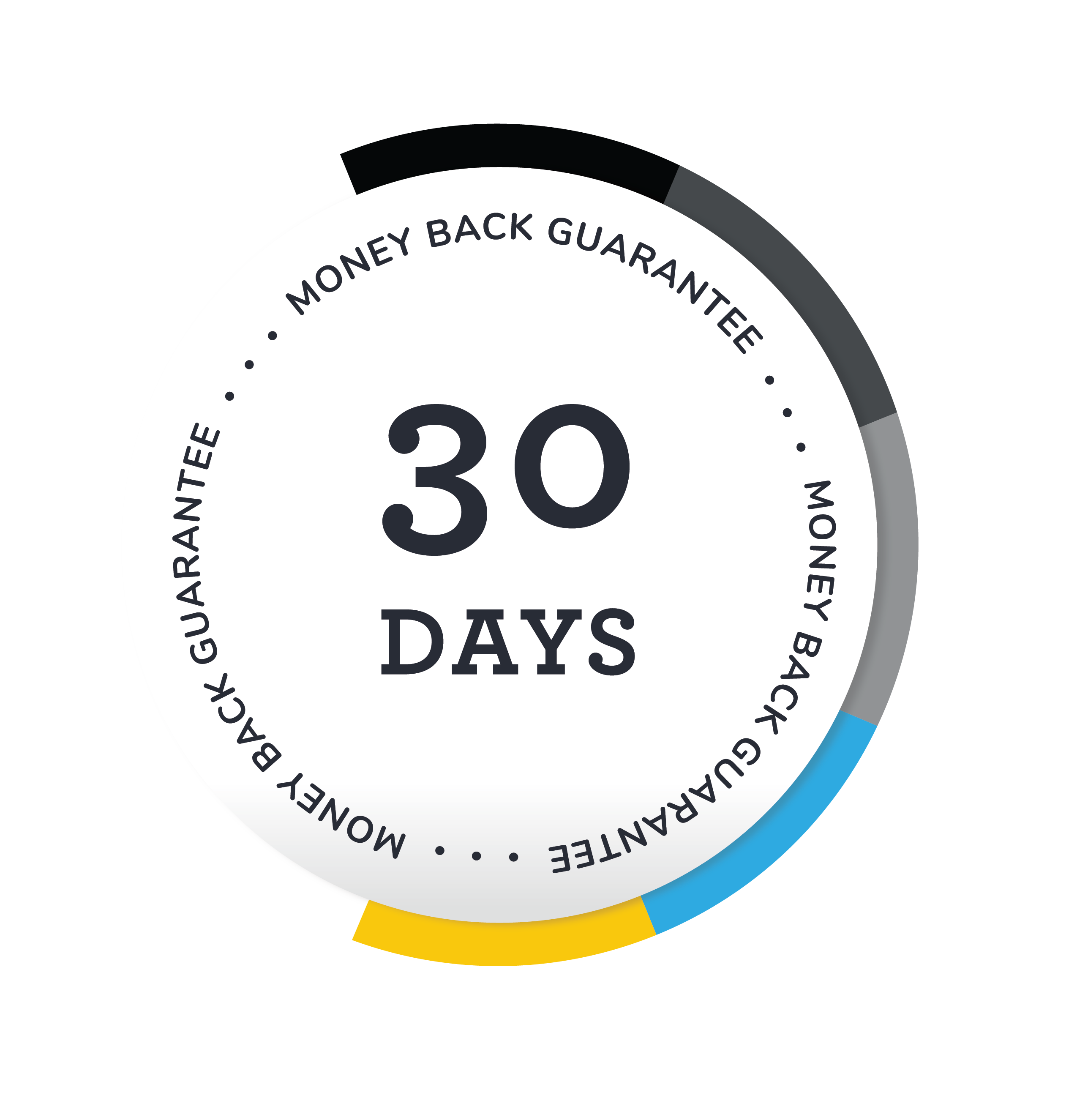Teams we have worked with and publications we've been featured by






What is
The Planning Course?
A self-guided online training program and CLE course
An all-new, in-depth self-guided online training and continuing legal education course for time management, time budgeting, planning, and productivity for lawyers.
The JDHD Planning Course is a unique and innovative course that will teach you how to get clear about your priorities, think about time differently, be productive in your life and work, and make meaningful work of accomplishing all the things on your lists.
The planning cadence is simple to follow and integrate into your life.
Built on years of work with lawyers struggling to get it all done.
Built first from and for lawyers with ADHD, whose needs demand clarity, simplicity, and quick wins.
If you are a lawyer, you've struggled to plan your projects, your tasks, your docket, and your day-to-day priorities at home and at work.
The Planning Course is built for you to spend just a few hours per week... and to find quick success without needing to memorize a new system or implement a bunch of new tactics.
"Marshall's special sauce is that he helped me plan my days and weeks differently. And that has been a revelation."
-Brad Hammer
"Wow. What a great day. You taught me the best way to do it myself. Teach a man to fish..."
-Anonymous
"Marshall has a gift. He exudes positivity and has a wealth of practical knowledge that you can easily apply to your profession and life."
-Anonymous
Plan | /plan/
Noun: a detailed proposal for doing or achieving something.
Noun: an intention or decision about what one is going to do.
Verb: decide on and arrange in advance.
Verb: design or make a plan of (something to be made or built).
Planning for Planfulness is Painful
Don't let life's opportunities pass you by just because it feels like there aren't enough hours in the day.
There's a better way to live life with less stress and more joy. It took me a long time to figure out how, but I've always known it.
You know it, too.
Here's the secret: it starts with learning how to plan your days and weeks and months in advance so you can actually get things done without feeling like a failure.
The Planning Course teaches you how to get more done in less time. It's a simple, step-by-step process for planning your time.
And when you plan your time, you spend more time doing what matters most to you. You'll learn how to surface your goals, prioritize the domains that matter most to you, manage distractions, and stay on track throughout the entire day (and week and month and year!). Best of all, it's completely customizable so it works with any schedule or lifestyle.
Sure, planning for planfulness is painful. But The Planning Course is full of easy-to-follow lessons and exercises. I will teach you how to plan every single week so that nothing slips through the cracks.
I know it sounds like a lot of work. And it is at first. But once you start using the methods I teach in The Planning Course regularly, everything will start falling into place, almost effortlessly. You’ll finally have enough time for yourself while still getting things done at work and around the house!
And when something does come up last minute (because let’s face it – something always comes up at the last minute), you're still covered. The Planning Course offers tons of tips on dealing with unexpected events without having them derail your plans for success
Structure Brings Flexibility
Learn by doing...
"Everyone has a plan, until they get punched in the mouth."
-Mike Tyson
The feeling of an overly-structured day can feel... claustrophobic.
There are too many people barging into your work time. Too many emails flying. Too much instant messaging on the firm's Slack channel. Too many clients with too many needs and too little time.
The last thing you need is structure! You need infinite flexibility!
And if you DO build a plan and get knocked off course (as you inevitably do), you believe it is because it is impossible to plan as a lawyer (or at least that it is fruitless, because your plans will always go unfulfilled).
The strange thing is that when you know how to plan your days, your weeks, your months, and your year, you'll find a new confidence that allows you to deal with unexpected events without letting them derail your plans. You might even find peace with getting punched in the mouth...

"In preparing for battle, I have always found that plans are useless, but planning is indispensable.”
-Gen. Dwight Eisenhower
"If I had five minutes to chop down a tree, I'd spend the first three sharpening my axe."
-Abraham Lincoln (maybe)
"Someone is sitting in the shade today because someone planted a tree a long time ago."
-Warren Buffett
"If you don’t know where you are going, you might wind up someplace else."
-Yogi Berra
What About CLE Credit?
A self-guided online training program and CLE course
We all know the CLE credit maze is difficult to navigate. But we're going to help you through it.
The Planning Course will qualify for continuing legal education ("CLE") credit in as many jurisdictions as possible. The process is long and arduous, but we will keep you updated on every development as our applications get reviewed and approved across the country.
In the end, this course will make you a better lawyer and a better person. Getting some credit to keep the regulators happy is just icing on the cake.
"If everything is a priority, then nothing can be your priority right now.”
-Marshall Lichty (probably)
"If nothing is a priority, then anything can be your priority right now. Even something that isn't your priority."
-Marshall Lichty (definitely)
"If you don't bound it in the beginning, it becomes boundless."
-Marshall Lichty (again)
Is The Planning Course Right for you?
Firm Leaders & Entrepreneurs
There's the old saw about putting on your own oxygen mask on first... That's because when you're struggling to manage your own time, it is really difficult to help people around you.
In our experience, most leaders don't need more time (which is good, because time is finite and unscalable). Nope. They need clarity and they need boundaries.
As a participant in The Planning Course, law firm leaders and entrepreneurs will walk away with tools they need to free up time by improving focus. They'll also create boundaries for themselves so that things don't slowly slip out of control without realizing it. You'll identify areas where outsourcing and delegating might make sense, giving you more room for what needs doing internally while still providing incredible service quality externally. Learn to grow your business and your team by seeking out and nourishing different skillsets and technology across your whole firm.
Lawyers with ADHD
As a lawyer with ADHD myself, I am all-too familiar with the pain and struggle of an unplanned, boundary-less life.
I'm also intimately aware that changing how we plan our lives at work and at home is the key to finally finding a respite from the overwhelm.
There is a path that leads to a life with margin and breathing room. It begins with being clear about what our priorities are. From there, we translate our priorities to the calendar by finding actual minutes during actual days to do the actual work that our priorities demand.
And we learn to build safe, respected boundaries with clients, partners, family, and work to insulate us from interruptions that will otherwise be the death of us.
Associates & Young Lawyers
For most young lawyers, the desire to prove ourselves becomes all-consuming. We're desperate to look competent. We're also deperate to be competent, of course, and sometimes the crush and complexity of partners, clients, paralegals, and our oppressive to-do lists makes being competent feel nearly impossible.
Learning how to show up for the people who are relying on you (supervisors, partners, clients, your family) while still maintaining boundaries and balance is an attainable fantasy when you're able to see how much time you need (and how much time you have). Learning when to strive for—and how to do—deep, quality, uninterrupted work is constant struggle.
And The Planning Course will help.
Solo & Small Firm Lawyers
The #solosmall set is full of gritty, courageous, do-it-yourself lawyers who see the great potential in creating something of their own that is unburdened by the confines of "the old way," "the biglaw way," or our profession's counfoundingly stubborn relationship with innovation.
Trouble is, the #sololife is also confining in its own right. The true solo is a typist, administrative assistant, courier, mailroom employee, project manager, HR executive, IT expert, operations manager, lawyer, salesperson, digital marketer, website designer, onboarding specialist, paralegal, associate, partner, and CEO.
It is no wonder solo and small-firm lawyers often feel stretched to the point of breaking.
A planful law practice brings clarity about how much time you need, how much time you have, and what to do if those things don't align. And it all begins with planning.
Law Students
Maybe the lawyers reading this look back with fondness on their time in law school when expectations were clear (ish) and unfettered (ish) by distraction.
But the law student life is a life desperate for planning. With everything riding on a law student's ability to manage time and effort spent learning the mysterious mix of cases, statutes, hypotheticals, and issues that will populate this semster's final exams, our beloved law school compatriots need to know how to prioritize class time, study time, socializing, work, job searching, and resume padding.
The Planning Course holds the key.
"It takes as much energy to wish as it does to plan.”"
-Eleanor Roosevelt
"Good planning without good working is nothing."
-Gen. Dwight Eisenhower (again)
"Plan for what is difficult while it is easy. Do what is great while it is small."
-Sun Tzu
"The best laid schemes o’ Mice an’ Men
Gang aft agley."
-Robert Burns
Your Unplanned Life
Reactive
Boundaryless
Out of control
Unsure and anxious about the future
No room for error
Flustered; always second guessing
Always fixing other people's urgent issues
Unclear goals
Unclear priorities
No plan forward
Survival mode
Important things slip
Saying yes to everything (feels guilty otherwise)
Procrastinating
Unable to give attention to some important areas of life
Unable to set—or meet—expectations with clients, partners, and family
Your Planned Life
Proactive
Clear, respected boundaries
In control
Long-term vision and goals
Relaxed, calm, and confident
Confident; makes decisions easily
Naturally takes ownership and responsibility in life
Clear goals and next action steps
Clear priorities (and clarity about how to meet them)
Anticipating excellence
Thriving
Important things come first
Saying no to most things, and feeling confident while doing so
Bias toward action
Making progress on projects and meaningful work
Setting and meeting expectations regularly.
When you're on more toward the left "Unplanned" side, you feel out of control. It's stressful. You don't like it there, but it feels nearly impossible to get out. You're responding so urgently and so frequently to things that feel out of control that you can't imagine having any breathing room to even create a new path forward (let alone actually implement it).
When you're on the right "Planned" side, you are very much in control. You know how much you want to work and how much you'll need to work to show up in ways that are on-brand for you. You'll have clear goals, clarity of purpose, and the time and energy to meet those goals. You'll feel far less stressed and anxious than your unplanned counterpart. You'll be better able to handle unexpected things that pop up. And your clarity about your priorities will make it easier to put meaningful boundaries in place with confidence (and keep them there).
Your unplanned life is already costing you far more than you can afford.

Marshall Lichty
Planning Course Host
Hey there! My name is Marshall, and I'm really excited to be your host and guide through The Planning Course.
I help lawyers and law firms work better. I'm a writer, small-business owner, productivity coach, ADHD coach, and entrepreneur living in Minneapolis with my wife and our two boys.
For nearly 20 years, I have been learning and teaching about how to plan and, critically, how to live the plan. For the last four, I've built my career around it. I've spoken about time management, planning, productivity, and the ethics of getting shit done at conferences and workshops and CLEs; I've taught these principles to private law firms of all sizes, state and local bar associations, and to one-on-one clients.

My Journey from Unplanned to Planned
I remember the first half of 2005 as being extraordinarily painful. By June, I had logged 1,350 billable hours and was on pace to bill more than 2,700 hours for a pretty basic mid-sized law firm in Minneapolis. I was sleeping too little, drinking too much, and had let most of my important relationships atrophy. I had no meaningful boundaries.
And yet, I felt embarrassingly behind with my never-ending issues at work. I kept trying to get ahead of the craziness. I kept trying new tools and tips to finally feel some breathing room. I kept waiting to start making progress on things that mattered to me.
I quit that job (twice, actually). And eventually I began working for myself. But even then, I was always chasing my to-do list. I was always reacting to the latest emergency. I was never satisfied that I'd accomplished enough that day (or week, or month, or year). I'd worry about work when I was at home, and I'd worry that I wasn't at home enough when I was at work.
I count myself among the fortunate now. I LOVE my work. But I don't want it to eviscerate every boundary in my life. I want to do powerful and meaningful work. I also want to soak up my life outside of work. Now I know I can do both.
How Planning Saves Me
As a lawyer with ADHD, I have spent a lifetime trying to understand how to focus. Even for lawyers without ADHD, focus and productivity and time management seem harder than ever. We're all distracted. We're all accessible to almost anyone at almost any time by email, chat, text, social media, phone, and elsewhere.
I've studied countless productivity systems and tools and apps and hacks. I've tested them and retested them, forgotten about them, resurfaced them, and tried 'em again. I've borrowed liberally from some of the most powerful minds on productivity in the known universe.
What you will learn during The Planning Course has changed my life. These are methods, ideas, and tools that have allowed me to grow a thriving business or two, do meaningful work for myself and others that makes me proud, and give meaningful time to myself and my family.
The things you will learn in The Planning Course are tested and proven. They will teach you that structure gives you flexibility, that boundaries are important, and that harmony and satisfaction are real emotions available to you despite the insanity of "the world these days."
The material in The Planning Course can change your life, too.
"I just had literally the best quarter of my career. The numbers—both hours and revenue—were there. But the margin! The amount of mental space I've reclaimed is amazing and is only increasing. The difference is that I started working with Marshall Lichty. He listened. He immediately threw out the playbook when I needed something different. And he understands how to introduce technology and tools that hold (and not just provide another distraction).
-Jenn Taddeo
The Planning Course
Curriculum
1: An Introduction to Planning
We make high-level plans by the year and the quarter. But it is the things we do each day and week that lead to relentless incremental growth and progress toward our priorities. Even a few days of aimlessness can provoke your anxieties and complicate tight timelines, sprawling workflows, and integrated teams.
Why Planning?
The Two Kinds of Planning
Margin & Boundaries
The Risks of Not Planning
Tools for Planning
The Templates
How Much Will I Work?
The State of the CLE
2: Your Planning Fundamentals
Meet the Planners
Planning is About Trust
Setting It All Up
The Big Rocks
The Biggest Threats to Your Plans
Contextual Planning
The Rules of Planning
3: A Pretty Good Planning Plan
The Common Threads
The Recurrences
The Annual Planning Cadence
The Quarterly Planning Cadence
The Monthly Planning Cadence
The Weekly Planning Cadence
The Daily Planning Cadence
Publishing Your Plans
4: Your Planning Environment
The Daily Planning Cadence (Reprised)
The Ultimate Guide to Time Blocking
Kill Distractions with 🔥
Getting the Work Done ✅
Project Management for Lawyers
Habits & Routines
Power Your Brain
What Even Is "Reasonable," Anyway?!?
5: Creating Your First Plan
Let's Get Down To Business
Your Annual Plan for 2022
Your Quarterly Plan
Your Monthly Plan
Your Weekly Plan
Your Daily Plan
Your First Retrospective 🤔
6: What to Do
When There's Too Much To Do
Be Curious
Track Your Progress
Iterate & Improve
Shoring up Your Boundaries (or, "How to say 'no' to a partner and live to tell the tale.")
Delegating More Effectively
Outsourcing 101
Dial In Your Brand
Design Thinking for Getting Sh*t Done

Satisfaction & Money-Back Guarantee
30-Day Guarantee. No questions asked.
I want your investment in The Focus Course to be an easy choice that excites you and leaves you free of risk or fear. And I know it can be scary to commit to something like this without being positive about the end results.
That's why I'm overjoyed to offer a full refund to anyone who doesn't get value during their Planning Course experience.
If you sign up, watch all of the sessions, and do all of the work in the sessions...
And if you find that it wasn't worth your investment...
Let me know within thirty days from the day you completed The Planning Course and I will gladly give you a full refund.
That's right. There's zero risk.
"A goal without a plan is just a wish.”
-Antoine de Saint Exupery
"Get a good idea and stay with it. Dog it, and work at it until it is done right."
-Walt Disney
"Plan your work, and work your plan."
-Napoleon Hill
"It does not do to leave a live dragon out of your calculations, if you live near him."
-JRR Tolkein,
The Hobbit
Topics & Themes
What else will we cover during The Planning Course?
Margin. I used to teeter perpetually on the brink of burnout... exhausted, overworked, and sure each day would be harder than the last. "Margin" is how we take back our lives and shift from overloaded to breathing.
Retrospectives. If anything is to change, we need to explore what goes well and what doesn't. That's why we built retrospectives into every step of your planning... to make sure you excise the things that didn't work and double down on the things that did.
Two Kinds of Planning. Planning your tasks and projects and to-do list is one thing. It is another thing altogether to understand how much time you have and to consciously delegate tasks to specific periods of time. This course will heop you plan your time.
Math, or "What it looks like to bill 2,200 hours." Did you know that to bill 2,200 hours in a year, you probably need to work 3,300? (In other words, from 8:00am to 7:00pm, 6 days every week for 50 weeks?
What to do when there's too much to do. When you know how much time you're willing to dedicate to your work and there are still too many things to do, you'll get clear very quickly about what needs to go. We'll find new joy in saying no, delegating, outsourcing, automating, and focusing like never before.
Contextual Productivity. Context matters. What if you did certain work only when it made the most sense for your circumstances? Batching tasks, optimizing for your energy peaks (and valleys), and thinking about work you can do in unusual places and times are powerful forces for good.
What is a "Productivity System" and where does Planning "fit" in mine? Getting things done isn't a "thing." It's a system. Your productivity system involves how you treat ideas, how you bring them to life through planning, how you break them down into manageable bits, how you find time to work on them, and how you get the work done. The Planning Course helps you take your projects and tasks and to dos and turn them into accomplishments.
Questions & Answers

Is there a refund policy?
Absolutely. If you sign up, watch all of the sessions, and do all of the work in the sessions... and if you still believe that it wasn't worth your investment...I will be glad to offer you a full refund if you email me within 30 days of completing the course.

What if I can't finish the course?
You'll have lifetime access to the course. My goal is to help you complete it in 4 weeks. But if, due to unforseen circumstances, you're unable to participate as you expected, just let us know as soon as possible and we will give you credit toward this course or another one in the future.

Do you offer group rates?
Yes. The Planning Course is perfect for law firms, legal departments, and companies that want their people to go through productivity training (and early CLE credits while they're at it).
If you have a group larger than 15, discounted pricing is available.

Will it work for me?
Maybe you're not sure if The Planning Course is the right fit for you. Or maybe you're just not sure that an unguided internet-based course can actually produce meaningful results in your life. I completely get it! Of course you want to trust that your investment of time and money will be worth it—you want to see results that will last, instead of just "one more thing."
I am entirely confident that if you show up and do the work, The Planning Course will work for you. I have seen it work dozens of times. Why? Because the structure I teach is simple enough that you can employ it in your life day to day, starting right this minute.
And the accountability built into the course helps you self-correct and get back on track if (when) you fall off your cadence.

Who is the course for?
The Planning Course is for anyone who wants to increase their overall productivity, their control over time and scheduling, and their satisfaction at work and home.
The Focus Course is for people who want to be more productive, have a better personal life, and have a better work life. It will guide you in implementing these principles so they are not just thoughts in your head but also things you do.
This course will help you understand how to figure out what matters. It is for people who are not happy with their work. There are many things taught in this course, and they all connect together. People have taken the class who are project managers, photographers, engineers, small business owners, designers or developers.

What if I don't have ADHD?
Lawyers with ADHD frequently struggle with time management, time budgeting, planning, project management, and productivity.
Often, I work with my clients by finding ways to bake the principles taught in The Planning Course into their brains in unique and powerful ways.
And although it sometimes takes a few attempts, they always get it. And when they do? Look out.
This Planning Course was forged in the crucible of necessity. And, for better or for worse, necessity demands that it be bulletproof. If you aren't fortunate to count yourself among us JDHDs, don't fret. This Course is built to work. Period. You may even find yourself incorporating its principles more quickly than anyone imagined. Even me.

